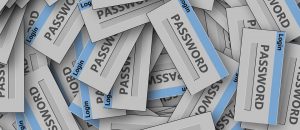In today’s day and age, online piracy is done in one of two ways, torrents or file lockers. Either content is illegally shared via torrents or it is stored in an online file locker (aka cloud storage service) and downloaded. The Digital Millennium Copyright Act is an American law that protects file locker websites, among other websites, from prosecution if they respond to DMCA takedown notices. In other words, any website can be issued a DMCA takedown notice by a copyright holder in regards to content on that website and the website must comply, otherwise risk the wrath of the legal system. Of course it is nearly impossible to manually find all pirated content stored in file lockers so big business has restored to automated methods.
LeakID, a “digital agency founded by experts from the world of radio, television and Internet” based in Paris, France, provides tools that help copyright holders find and remove infringing content on the Internet. One such LeakID product is “Leaksearch”, which LeakID describes as an “ownership tool that will alert you within seconds if your content… is being pirated”. Although I haven’t used the tool myself, I presume Leaksearch is a tool that automatically finds what it feels is pirated content and automatically issues DMCA takedown requests.
Renowned security researcher Mila Parkour felt the wrath of LeakID, Leaksearch, and big business this past Thursday when she was booted off MediaFire because three of her files — a Microsoft Office patch and two ZIP files containing malicious PDFs (all three relate to security research she conducted in the past) — were flagged as “copyrighted material”. Aside from being told that her account held copyrighted material, Parkour was not given any details as to exactly what she did wrong and when Parkour tried to contact MediaFire as to why her account was suspended, she was told to refer to LeakID for all inquiries. When Parkour contacted LeakID, they did not answer nor have they gotten back to her (yet).
Talking to Naked Security, Parkour says she does not believe her files violated any copyrights, especially since the files were related to security research and not file sharing. Parkour also vented her frustration at the lack of information she was given as to her offense:
LeakID seems to have a business model to scout the web for all they find and then offer it for sale to copyright owners… there is no explanation of WHY and HOW they decided it was copyrighted.
For what it is worth, Parkour has now regained access to her files although it isn’t entirely clear if this access is temporary or permanent. Still, the issue of why her files were flagged in the first place is something to think about.
First off, let’s be clear: MediaFire is not to blame here. Unless MediaFire wants to become the next MegaUpload, MediaFire must respond to DMCA requests. Secondly, I have no problem with big business using automated tools to protect their intellectual property; in fact, I expect them to do so. The problem is these tools are now being coded to be overly aggressive.
When the Internet was coming of age, businesses fell behind in protecting their intellectual property; they couldn’t keep up with new technologies and pirating activities. Now, however, tools like LinkResearch have become overly strict in what content they look to takedown. While a logical person may have looked at Parkour’s files and decide not to issue a DMCA, LinkResearch, despite how useful it may be, does not have the inherent judgement of a human; it responds to 1s and 0s, if-then statements. The people who create these tools have programmed them to be too aggressive (no doubt due to demand from big business), to the point that they are counterproductive. How many hours were wasted of Parkour’s time to try to regain access to her files just because LinkResearch didn’t have the judgement to decide Parkour was not participating in pirating activities?
I’m not sure where the fine line is when it comes to automated anti-piracy tools but, in my opinion, the pendulum has swung too far. It needs to be re-calibrated or risk DMCA, a valuable tool, becoming a joke.
[via Sophos]

 Email article
Email article




